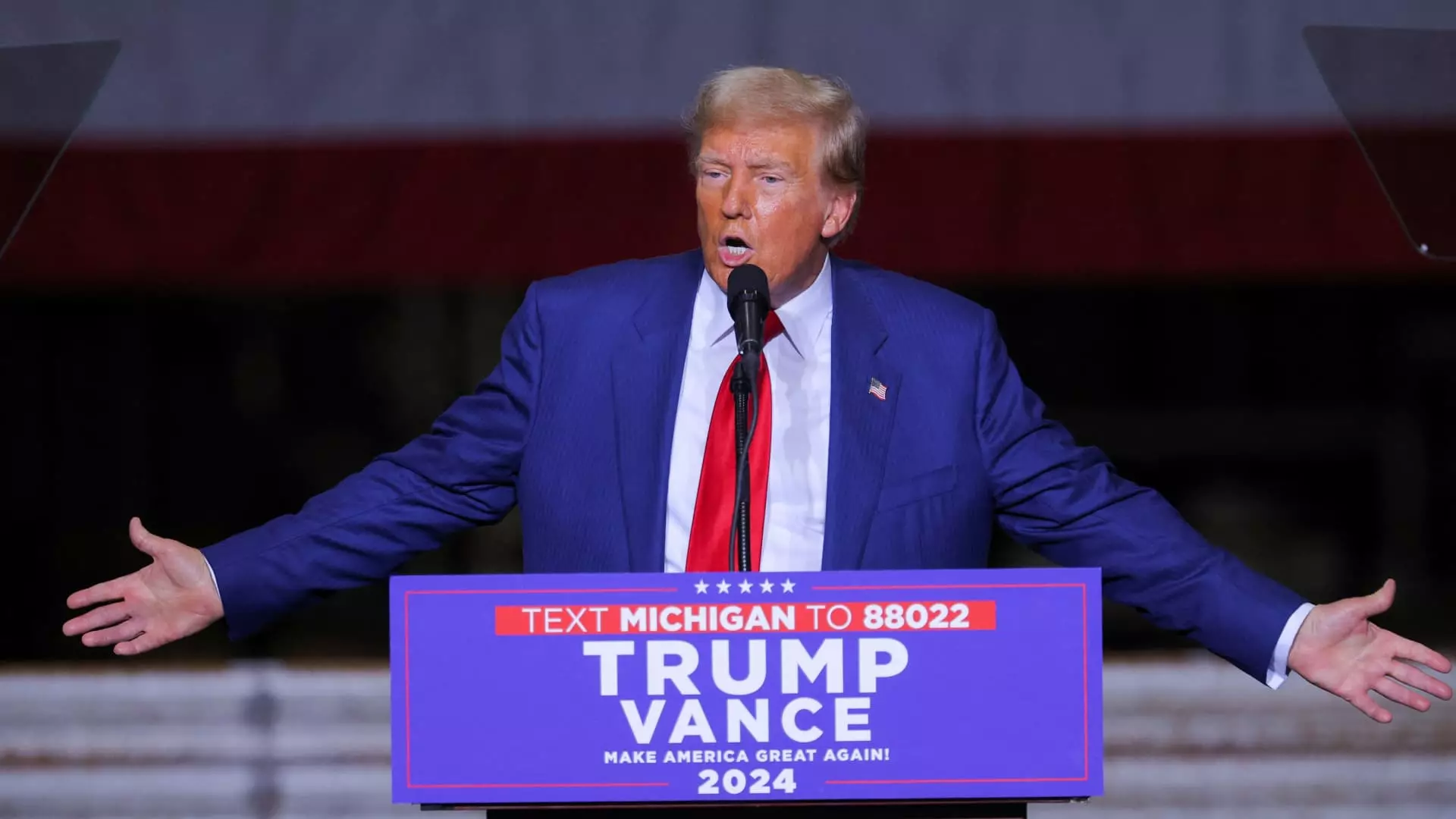In a surprising turn of events, Republican nominee Derrick Anderson, running in Virginia’s seventh congressional district House race, has chosen to distance himself from the traditional stance of his party and former president Donald Trump. Anderson, who is campaigning in a region with a significant federal employee population, has declared his opposition to proposed cuts that could potentially harm the local economy. This bold move sets him apart from the typical Republican rhetoric of reducing the size of the federal government and reflects a nuanced approach to policy that prioritizes the well-being of his constituents over party allegiance.
Anderson’s decision to break ranks with Trump and embrace a more moderate position underscores the complex dynamics at play in the upcoming election. While he has secured the endorsement of Trump, Anderson faces formidable opposition in the form of Democratic nominee Eugene Vindman, who boasts a significant financial advantage. Vindman, whose campaign has raised substantially more funds than Anderson’s, presents a formidable challenge that will test the resilience and appeal of Anderson’s platform.
The proposed policies, championed by Trump, such as relocating federal workers and targeting “rogue bureaucrats,” have far-reaching consequences that extend beyond political rhetoric. The potential relocation of 100,000 federal employees from the D.C.-Maryland-Virginia area and the implementation of measures to replace career civil servants with politically loyal staffers could have a devastating impact on the local economy. The loss of well-paid jobs and the disruption of established networks could lead to a significant decrease in economic output, as noted by experts like Terry Clower of George Mason University.
The Path Forward
As the race for Virginia’s seventh district heats up, the competing visions and strategies of Anderson and Vindman come into sharper focus. While Anderson seeks to carve out a distinct identity that prioritizes local interests and economic stability, Vindman aligns himself with a more progressive agenda that emphasizes accountability and opposition to Trump-era policies. The clash of ideologies and the stark financial divide between the two candidates set the stage for a closely fought battle that will not only determine the representative of the district but also send a message about the evolving political landscape in the region.
The evolving political landscape in Virginia’s seventh district reflects a broader shift in the Republican Party and the challenges faced by candidates seeking to navigate a rapidly changing environment. Anderson’s decision to diverge from the traditional party line and prioritize the concerns of his constituents highlights the complex interplay between political rhetoric, economic interests, and individual convictions. As the election unfolds, the outcome will not only shape the future of the district but also serve as a barometer of the prevailing sentiments and priorities of voters in an era of transition and uncertainty.



Leave a Reply